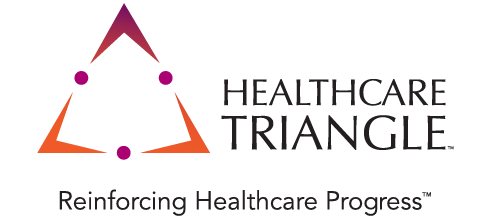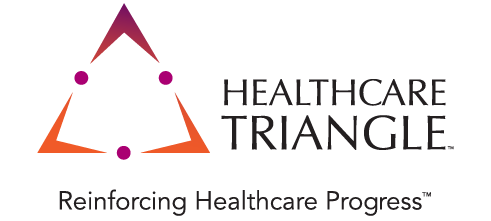Get Your Head in the Cloud: Managed Cloud Services Help Healthcare Organizations Attain Digital Transformation
Healthcare Triangle
Nov 09, 2021
Six out of 10 healthcare organizations are adopting a hybrid approach to cloud adoption, a recent CHIME survey of healthcare IT executives found, while 10% rely on public cloud services and 11% use a private-cloud approach. Yet 47% say it’s too early to tell whether their investment is providing value—a finding that could point to the value of a managed services approach.
Across the country, spending on public cloud services across industries is expected to grow 18.4% in 2021 to nearly $305 billion. Many organizations cite the need to strengthen business continuity and achieve cost efficiency while accelerating digital transformation as the driving force for cloud adoption.
Unfortunately, 64% of healthcare executives say a lack of IT skills and talent are weighing down their digital transformation initiatives, according to an EY survey. This inhibits their ability to innovate.
Leveraging the power of managed cloud services can help overcome this and other obstacles, positioning healthcare organizations to realize the greatest return on their investments toward digital transformation. Indeed, a managed cloud services approach can empower organizations to optimize cloud performance, decrease costs, and enhance security and compliance.
A Cost-Effective Approach to Accessing and Building Key Talent
The COVID-19 pandemic has put a spotlight on the difficulty many companies face in identifying, hiring, and retaining personnel with the right skill sets across virtually every industry. The learning curve in IT is steep. Managed cloud services providers can immediately deliver qualified personnel to clients by staffing a cloud center of excellence staffed with the right talent to gain optimal value from their investments toward digital transformation. These centers of excellence also allow clients to retrain and upskill existing staff over time through mentorship, training, documentation, and process development. With a cloud center of excellence in place, organizations can invest in the right staff for long-term needs while obtaining access to specialized, hard-to-find skills in a more cost-effective, agile way.
Take drug development. Pharmaceutical companies can leverage managed cloud services to access the artificial intelligence and analytic capabilities required for fast, secure analysis of large, diverse data sets. This holds considerable advantages with respect to collecting and analyzing real-world evidence from millions of people to measure the efficacy of a drug. By providing specialized talent as needed through a cloud center of excellence model, pharma companies gain the intellectual support they need for advanced innovation such as this without having to search for hard-to-find talent.
Enhancing Security and Regulatory Compliance
Healthcare ranked as the most targeted industry for ransomware and other cyberattacks in 2020. Given that patient data is viewed by hackers as a high-value target, healthcare organizations must create layers of protection—including cloud-based protection—to protect their data and respond to threats in cost-effective ways. It’s one reason why spending on cloud computing rose 37% across industries during the first quarter of 2020, including for disaster recovery—and why true digital transformation depends on cloud-based security and data management.
Managed services cloud service providers such as Healthcare Triangle help fill this gap on behalf of their healthcare clients. They examine contracts closely to help their clients meet their portion of the shared-responsibility model while taking advantage of the power and efficiency of the public cloud safely. Public clouds hold a security advantage over private clouds and on-premises data centers because public clouds:
- Suffer 60% fewer security incidents than on-premises data centers
- Invest heavily in security innovation and continually gain access to the latest protections available due to economies of scale
- Typically attract top IT security talent due to the name recognition and reputation of public cloud providers, such as Amazon and Google
- Are considered less complex and less dependent on older technologies than on-premises data centers and private cloud providers
One hospital in southeast Iowa recently implemented a public cloud-based backup and disaster recovery solution for its EHR to bolster its cybersecurity defense. Ransomware protection—from immutable backups to containerization and rapid environment recovery without local operating system infection—is critical at a time when ransomware attacks in healthcare are rising, with 82 ransomware incidents in the first half of 2021 alone. Healthcare Triangle worked with the hospital to develop a highly flexible, highly scalable, and more reliable solution for disaster recovery, with improved recovery time and a 30% savings over private cloud solutions.
A Flexible Solution that Scales with Growth
One biotech and pharmaceuticals company experienced slow performance with its existing business applications, with analytics queries taking days and even weeks to complete. With the company’s volume of data expected to increase tenfold in the immediate future and its existing cloud contract set to expire, the company hired a managed cloud services provider to help it transition to the public cloud.
Through a managed IT services approach, the company migrated more than 200 systems, applications and products to the cloud, achieving a 60% reduction in database size; 30% improvement in business applications performance; no disruption to its business operations; and a savings of some $400K on annual IT costs.
Enhancing Organizational Focus on Other Important Initiatives for Digital Transformation
All healthcare IT departments regularly face challenges associated with ensuring that their organization’s EHR functions properly, adhering to regulatory mandates, and meeting the demands for improved interoperability. Handling these responsibilities—as well as addressing issues that crop up unexpectedly—can leave little time to devote to initiatives aimed at achieving digital transformation.
Managed cloud services providers can assume many of these routine, break/fix tasks while also proactively preventing issues from disrupting daily operations. This frees up CIOs and their teams to focus on strategic innovation without having to balance their desires to achieve digital transformation objectives against the realities of limited staff and financial resources.
Fast, Efficient Data Processing
The growing digital-first environment is creating a massive volume of structured and unstructured data from health wearables, biometric sensors, and mobile health apps. Managed cloud services give healthcare organizations the advanced capabilities to collect this disparate data, tie it to patients’ electronic medical records, and analyze it all to improve outcomes. Managed cloud service providers also can obtain analytics data with artificial intelligence, machine learning, natural language processing and other advanced tools available via the cloud. With pay-as-you-go cloud computing models emerging, these capabilities have become more readily accessible to healthcare organizations, regardless of size or type.
A Sustainable Approach to Transformation
According to the EY survey referenced above, 62% of healthcare leaders plan to focus digital investments on cloud computing over the next two years. This confirms that organizations aspiring to true digital transformation must enlist the power of the cloud if they are to compete in today’s swiftly evolving healthcare environment. Securing specialized support from a managed cloud services team can position healthcare organizations to more fully leverage their digital investments, creating a strong foundation for digital innovation.
Drop an email to info@healthcaretriangle.com or schedule a consultation.


